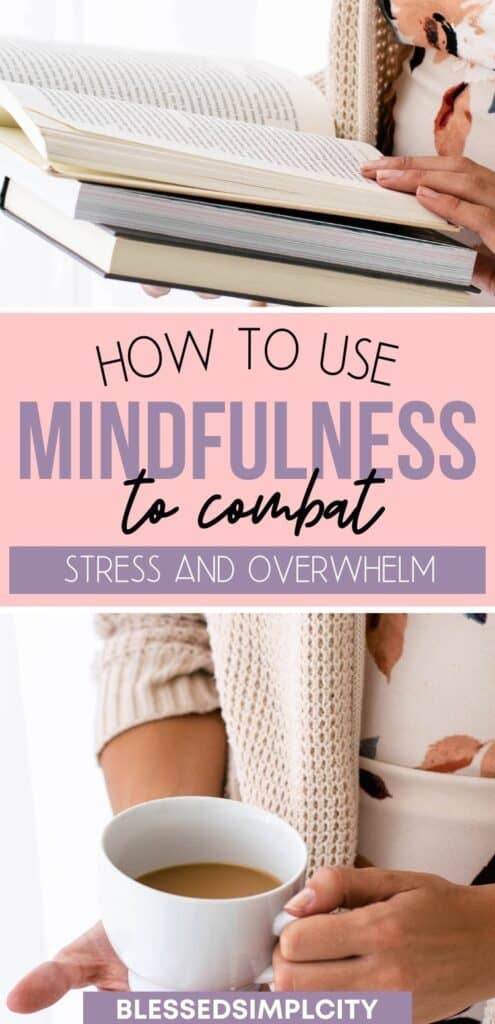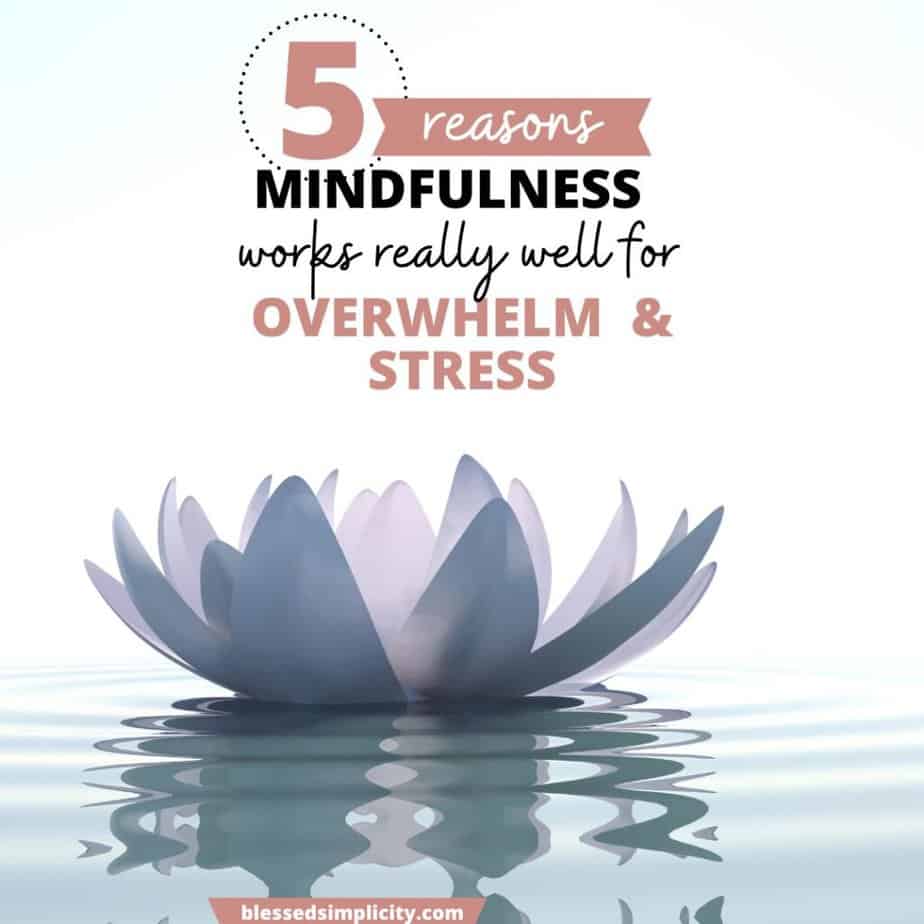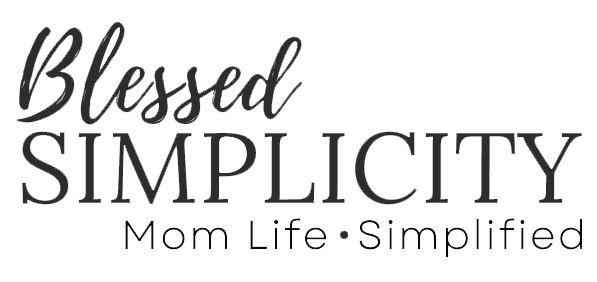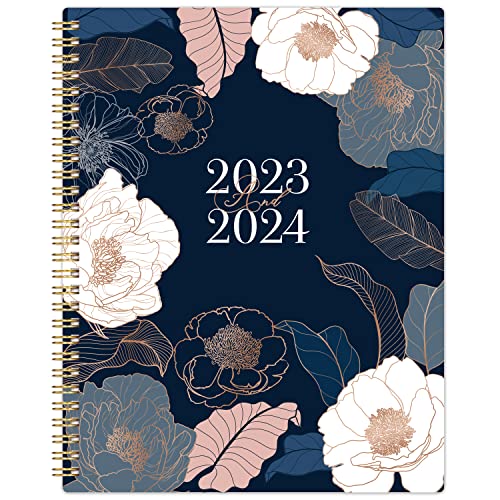Mindfulness FOR Overwhelm and Stress
Learn how to implement a regular practice of mindfulness for overwhelm and stress in order to become more emotionally resilient and face daily challenges head on.

*This post contains affiliate links. Please see full disclosure policy below.
Mindfulness as a Powerful Tool in Navigating Stress and Overwhelm
In today’s fast-paced world, mindfulness has grown to be a powerful tool in managing the stresses and overwhelming emotions of everyday life. This mindfulness practice allows us to heighten our awareness of our thoughts, feelings, emotional state and reactions, equipping us to better handle difficult experiences.
Regular mindfulness practice strengthens our emotional regulation and mental health, allowing us to mitigate the stresses of daily life. By constantly practicing mindfulness, it becomes a part of life, enabling us to identify when stress levels are high or when we feel overwhelmed, giving us the capacity to step back and assess the situation with clarity. This post will delve into the power of mindfulness in managing overwhelming feelings and stress.
RESTCLOUD Neck and Shoulder Relaxer, Cervical Traction Device for TMJ Pain Relief and Cervical Spine Alignment, Chiropractic Pillow, Neck Stretcher (Purple)Yeipis 4 Pack Scalp Massagers, Handheld Head Massage Tingler, Scratcher for Deep Relaxation, Hair Stimulation and Stress Relief
Acupressure Hand Pressure Point Clip, All Natural Headache Migraine Aid, Pain Relief, Drug Free Tension Anxiety Relief, Stress Reduction, Soothing Muscle Pain Alleviation – (Blue)
6 Pack Breathing Necklace, 2 Anxiety Necklaces with 2 Gift Bags and 2 Cleaning Brushes for Breathwork, Meditation, Relaxing, Calm and Stress Relief, Stress Reduction (Gold & Black)
Comfitech Migraine Ice Head Wrap with Top Coverage Headache Relief Hat for Cranial Cap Tension, Sinus Cold Therapy Stress (Medium Black)
Mindfulness in Fostering Mental Health
Securing good mental health is an important step in maintaining overall physical health. This equates to having a positive outlook on life and managing feelings of anxiety or fear effectively. However, if mental health isn’t a priority, navigating the challenges of daily life becomes a daunting task. This is where mindfulness meditation techniques come in!
Mindfulness is a powerful way to arm ourselves with techniques like meditation and deep breathing exercises in order to foster calm in chaotic situations. It also enhances self-reflection, promoting deeper connections with ourselves and others.
The benefits of maintaining mental health are enormous, from positive effects on daily life to gaining the ability to manage tough times with ease. When faced with demanding situations, many resort to unhealthy responses like drinking or overeating. Mindfulness, however, guides us into self-exploration to understand the source of our stress and overcome it.
The essence of mindfulness is focusing on the present moment with a non-judgmental awareness. This requires recognizing negative thoughts and feelings without being controlled by them. Apart from accepting situations as they are, mindfulness training opens our eyes to our surroundings, enabling more effective responses to challenging scenarios.
Mindfulness teaches us to acknowledge our emotions and understand our thought process without forming any prejudiced views. This enables us to make logical decisions and cultivate healthier habits that aid in stress management.
Leveraging Mindfulness Techniques to Counter Overwhelm
In the modern life, it’s easy to feel buried in requests for our time and attention. The struggle to keep up with everything can leave us feeling as if there are not enough hours in the day. Learning to manage overwhelm is crucial in maintaining a healthy work-life balance. One effective way to manage this stress is through mindfulness-based stress reduction techniques, creating mental space for healthier daily activities.
To incorporate mindfulness into your daily routine, dedicate a few minutes every day to yourself. Find a quiet place where interruptions are minimal and practice mindful breathing. This mindfulness exercise promotes stability in dealing with challenging scenarios. It provides precious time to evaluate what requires our full attention the most.
When your mind wanders, it’s critical to acknowledge the thoughts without judgment and then refocus on your breath until relaxation is achieved. A mere five minutes daily can significantly enhance your ability to respond rather than react in difficult situations. Writing down the thoughts that worry you and addressing them one-by-one can also be beneficial.
If a specific situation triggers stress or anxiety, writing it down can provide valuable perspective. Additionally, writing can relieve stress remarkably. Having clarity on what needs to be tackled first ensures effective handling of the situation. Keeping a to-do list keeps you focused on one task at a time, preventing a return to overwhelm.

Mindfulness for Emotional Resilience against Overwhelm
It’s common knowledge that stress and overwhelming emotions have negative effects on our overall well-being and emotional strength. Unfortunately, it can be hard to balance oneself when experiencing intense emotions.
Luckily, mindfulness is a valuable tool that can shield us from harmful tension levels and enhance our emotional resilience. Essentially, mindfulness involves giving full attention to the given moment without being swayed by past or future events, helping us become more alert of our thoughts and feelings before reacting.
Practicing mindfulness helps us become more in tune with our emotions, allowing us to take a moment and identify their cause. This is a powerful tool indeed! With enough practice, we can cultivate a healthy emotional distance, enabling us to pause and contemplate before reacting in any situation.
It may seem daunting initially, but it’s not as complicated. You can start with small steps like paying attention to physical sensations before moving on to observing your thoughts objectively.
Using grounding exercises like progressive muscle relaxation or diaphragmatic breathing can provide immediate relief during stressful moments and lower the mental strain. Mindfulness ties in with self-awareness, recognizing how we are feeling both physically and emotionally, and understanding our own thinking processes, values, and beliefs, without self-judgment. This introspection aids in understanding why we make certain decisions or avoid certain actions. So, when life throws a curveball, we are equipped with necessary tools to make beneficial decisions.
Academic Planner/Calendar – Jul.2023 – Jun.2024, Weekly and Monthly, 8Forvencer Lined Spiral Journal Notebook with 300 Numbered Pages, B5 College Ruled Thick Journals for Writing with 100GSM Paper, Hardcover Notebooks with Contents for Work, School, Women, Men, Orange
WRITECH Retractable Gel Pens Quick Dry Ink Pens Fine Point 0.5mm 10 Assorted Unique Vintage Colors For Journaling, Drawing, Doodling, and Notetaking (Vintage 2)
Elastic Bookmarks Set Multi Color Elastic Rope Bands Planner Bookmarks Include 30 Pcs Stainless Steel Teardrop Paper Clips and 12 Pcs Elastic Bands for Office School Reader (Bright Color)
12 Set Elastic Planner Bands Stretchy Closure Bands Elastic Book Strap Adjustable Book Strap with Pen Holder Bookmarks Elastic Strap Pen Holder Planner Accessories for Journals File Notebook, 3 Colors
SUIN Hardcover-Journal-Notebooks, 6 Packs A5 Lined Journals Notebook for Writing 200 Pages, 8.2 x 5.5 inch, 6 Colors Classic Ruled Notebooks for Work/Travel/College
Clabby 4 Pieces Adjustable Elastic Band Pen Holder Colorful PU Leather Sleeve Pouch Notebook for Hardcover Journals, Notebooks, 8-1.5 Inch, Detachable (Khaki, Gray. Brown, Navy)
Real-world Examples of Mindfulness in overwhelm
Mindfulness is a great tool for stress management, requiring us to be present, focusing on current thoughts, feelings, and physical experiences without judgment. Mindfulness practice allows us to pinpoint stress triggers, understanding their impact on us, and equipping us with the tools to counter their effects.
Suppressing emotions may be the instinctual response when overwhelmed or stressed, but acknowledging these feelings and sitting with them can effectively reduce distress. Being present and acknowledging our current state equips us with understanding of how different individuals react under various circumstances. This insight helps us navigate through challenging moments without distraction.
Taking time for mindfulness allows us to disengage from stressors, process emotions, and strategize on the most effective way to manage them. Another mindfulness exercise involves focusing on our breathing patterns when feeling overwhelmed. By paying attention to our inhalations and exhalations, we can regulate our breathing and remain calm.
This is an effective way of handling anxiety or panic attacks during distressing times. Furthermore, mindfulness helps us recognize thought or behavior patterns that add more pressure. By closely observing these, we can understand why these feelings bring about stress and devise ways to avoid such incidents in the future. The focus is not on negative thinking but on awareness, facilitating positive changes for mental and emotional health.

Summarily, mindfulness is an effective way to manage emotions, enhancing mental well-being. It fosters resilience to overcome challenges and nudges us to face reality in a constructive way. However, regular practice is key to achieving the best results. If negative thoughts or emotions become overwhelming, it’s important to seek professional help. Remember, you are not alone, and there are many who are ready to help when needed.
More Mindset Posts for Moms
- How to Break the Overwhelm Cycle
- Setting Boundaries to Combat Overwhelm – How to Say No
- How to deal with overwhelm – seven practical tips
- Medical Mom Stress
- Stress Buster Tips for New Parents













